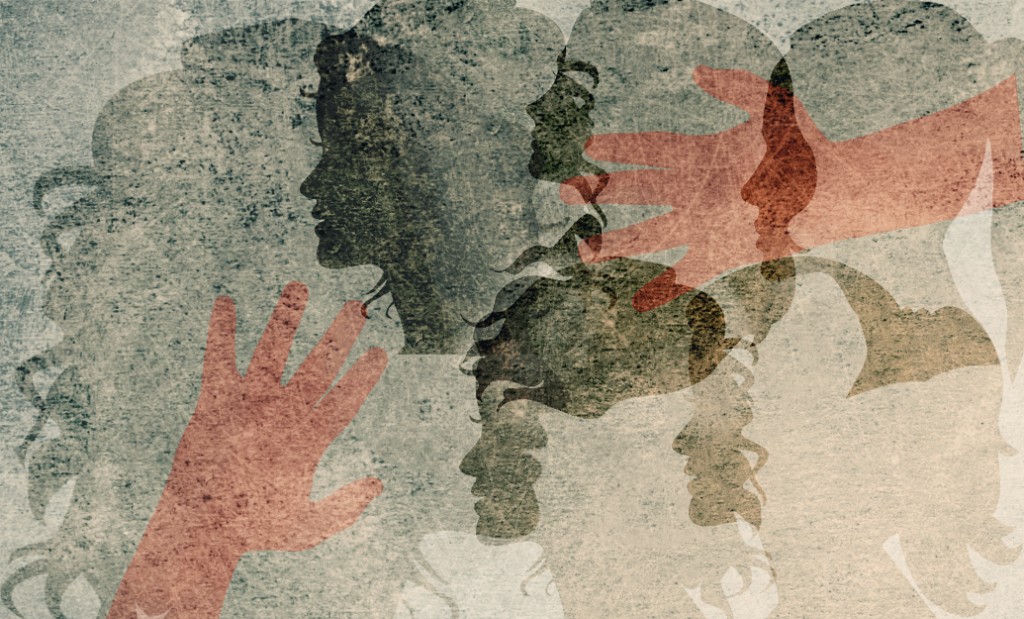December 24, 2024 | institutional abuse Claims
Boy Scouts and Girl Guides Institutional Abuse Claims
Table of Contents
Legal Options for Former Scouts and Guides Who Were Sexually Abused in Alberta
Decades of allegations and reports have surfaced of current and former (Boy) Scouts and Girl Guides enduring sexual, physical, or psychological abuse at the hands of adult leaders, whether employees or volunteers. In many of these cases, the overseeing scout organizations, primarily the Girl Guides of Canada and Scouts Canada here in Alberta, failed to uphold their duty of care to members who were victimized (for example, if they did not investigate incidents of abuse when they were first reported).
If you were abused and wish to use legal means to hold the scouting organization to account for this failure, our experienced institutional sexual abuse lawyers can respectfully advise you throughout the process of pursuing damages. We pride ourselves on listening to our clients with a trauma-informed approach. We understand that your comfort and feeling of safety are paramount.
Although the choice to come forward can be difficult to make and past attempts may have been ignored or dismissed, many of our clients have said that doing so helped them to regain a sense of control over their lives, in particular their past. Pursuing justice, if you feel ready, could be a major step in your own healing journey.
What Is Institutional Abuse?
The scouting movement originated in the late 1800s and early 1900s with the aim of developing good character, a desire to help others, camaraderie, self-esteem, and self-reliance in young people (particularly boys) through “learning by doing.” Adults mentor youths by teaching them practical survival skills (such as cooking or making a fire) that they then apply in outdoor environments.
Soon after the “boy” scouts were established, girls expressed interest in taking part in scouting activities as well, which led to the founding of the Girl Guides. Some Scout troops also allowed girls to join. Today, Scouts Canada is the main organization overseeing scout troops, while Girl Guides of Canada oversees the many local units of guides around the country.
Unfortunately, some scout leaders exploited the power they held over children to cause harm to them. The specific abuse may range from a single instance of inappropriate touching over clothing or exposing a youth to adult media to much more severe, repeated acts of sexual assault.
Albertans have not been immune to such wrongdoing, among them the notable case of Edmonton-area man Fred Miller. Miller was a former police officer who served in executive positions with the Scouts and escaped justice for decades despite numerous complaints made against him to the police and Scouts Canada. He was finally convicted in 1995 of sexually assaulting 10 children between 1957 and 1993.
An independent report by KPMG also found that the Scouts did not follow best practices in keeping children safe, including not keeping good records about abusers or scout leaders, often not reporting child abuse to the police, and failing to have clear child safety policies to prevent abuse.
Are There Any Scout Groups in Canada Other Than Scouts Canada and Girl Guides?
Scouts Canada and the Girl Guides of Canada are the most widespread and well-known of the Canadian scouting organizations. Nevertheless, other scouting and guiding groups that were independently established, or are affiliated with either the groups noted above or other scouting associations, have also emerged in Canada. Some examples include scouting groups focused on members of Ukrainian and Polish heritage.
As your counsel, we can help you determine the correct defendant (or defendants) to name, given the specific facts of your case and past scouting activities.
Scout troops are divided into several age groups, ranging from young children to teenagers.
Groups within Scouts Canada include:
- Venturer Scouts (Ages 15 to 17)
- Boy Scouts (Ages 11 to 14)
- Cub Scouts (Ages 8 to 10)
- Beaver Scouts (Ages 5 to 7)
Groups within Girl Guides of Canada include:
- Rangers (Ages 15 to 17)
- Pathfinders (Ages 12 to 14)
- Guides (Ages 9 to 11)
- Brownies and Embers (Under age 9)
Common Experiences of Survivors
The consequences of institutional abuse can be far-reaching and lasting. Some experiences and circumstances that victims commonly face, which you may recognize, include:
- Pain and suffering
- Mental health issues
- Substance abuse
- Relationship difficulties with friends, family, and spouses
- Distrust of authority figures
- Difficulty maintaining consistent employment
- Post-traumatic stress
- Gender or sexual identity issues
Feelings of shame and self-blaming are also common among survivors. We would like to stress that these challenges are not your fault. We will work with you and bring in suitable qualified experts such as psychologists and vocational experts, to determine the specific ways and to what degree your abuse impacted you and your ability to attend school and work and have healthy relationships.
What Kinds of Compensation Do We Seek?
Depending on specifically what happened to you and its effects, a variety of damages may be applicable and form part of your claim. Broadly speaking, damages can be classified as pecuniary or non-pecuniary.
Non-pecuniary damages are supposed to make up for the emotional and psychological toll you have experienced, which may include (but are not necessarily limited to):
- Pain and suffering
- Loss of dignity
- Loss of quality of life
Pecuniary damages are intended to cover tangible losses, including (but not limited to):
- Out-of-pocket expenses
- Lost wages and education impacts
- Lost future earning capacity
- Loss of interdependence (problems forming and maintaining healthy relationships)
- Future care costs
In some instances, the institution may provide a formal written apology to survivors as part of a settlement as well.
Is It Too Late?
You might be concerned that too much time has passed since the abuse occurred to take legal action. Fortunately, Alberta law specifically permits civil legal claims based on sexual abuse or assault of a minor, regardless of when it occurred, unlike most civil claims, which are subject to a statute of limitations.
This change was made in part to recognize the difficulties that minor victims face in coming forward. Our institutional abuse clients tend to be in their 50s to 80s and have wrestled with the wrongs they suffered for decades. Often, they express surprise that someone believes them when they speak to us.
Most claims of institutional abuse demand very little direct involvement from the plaintiff, and very few go to trial. The timeline from the first meeting with one of our lawyers to resolving a case, of course, depends on many factors, including the level of co-operation by defendants, but in our experience, most claims are resolved within 1 to 3 years.
Even if the claims process has already begun, you can still decide to pause it or step away should you find that the process brings up too many unpleasant memories and emotions.
Civil claims are distinct from criminal complaints. To file a civil claim, you are not required to have reported your abuse to police in the past or to do so now. Nevertheless, you also have the right to make a criminal complaint against your abuser at any time if you desire.
Is This a Class Action?
No. We only represent individual clients in cases of institutional abuse and will file your claim as such if we represent you. Our firm asserts that your story is deeply personal and deserves to be told on your terms alone.
Class-action lawsuits require anybody who is considered a member of the class, such as scouts who were abused over a particular period, to opt out by a specific deadline if they do not wish to participate or want to file an individual claim. However, often abuse survivors are not even aware of the lawsuit before the deadline has passed.
As we have argued in court, the need to opt out limits the freedom of class members to pursue justice at their own pace, which is one reason that courts in recent years have increased the criteria for allowing class-action lawsuits to proceed.
Our experience has also shown that damages paid to claimants in class-action lawsuits tend to be much, much lower than when compensation is awarded or settled for an individual claim.
Are You Ready to Seek Closure for Your Abuse? Call for a Free Initial Consultation
We encourage you to contact us at our toll-free phone number, 1-888-494-7191, any day and any time, to set up a free initial consultation. Additionally, our downtown Calgary office welcomes walk-in visits.
Our institutional abuse lawyers are eager to learn about the details of your potential claim and explore your legal options with you. We work with our clients exclusively on a contingency fee retainer basis, so rest assured that you will never have to pay us for any services unless we secure you compensation.
Written by Seth Wheeldon
Personal Injury Lawyer
Lawyer Seth Wheeldon’s practice focuses on personal injury claims, including motor vehicle accident claims, slip and fall claims, and long-term disability claims.
More institutional abuse Topics
Here’s more information on institutional abuse related topics that we think you might find helpful.

institutional abuse
|
September 5, 2025
Justice for Victims of Canadian Military Cadets Institutional Abuse in Alberta
Canada’s military cadet youth programs are designed for young people aged 12 to 18. The programs’ primary goal is to develop leadership, citizenship, and physical…

institutional abuse
|
February 27, 2025
Alberta Big Brothers Big Sisters Institutional Sexual Abuse
Numerous reports by victims have shown that young people suffered institutional abuse that was sexual, physical, and psychological in nature while participating in Big Brothers’…
Speak With Our
Legal Team for FREE
Find Out if You Have a Case in Under 5 Minutes
Speak to a Lawyer Now!
We’re here to help.
